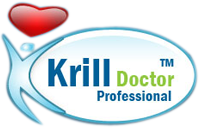Pregnancy is probably the most beautiful time of life for any woman. However, aside from being beautiful and fulfilling, it is also stressful and very difficult to bear in many situations. Taking care of the baby starts even before it is born, and worrying about the baby starts as soon as a woman finds out she is pregnant. Naturally, every woman makes some changes in her life when she finds out that she is pregnant, and some women make a lot of changes. They start eating healthier, they start leading a stress-free life or at least try to, they get rid of bad habits such as smoking or drinking alcohol, and so forth. However, aside from this, they also start taking dietary supplements to ensure that they and their baby are safe, as well as that they are getting all the nutrients they need.
Is Krill Oil Safe to Use During Pregnancy?
One of the best dietary supplements available on the market is krill oil, but the question is the following: is it safe to take during pregnancy? The answer to this question is completely and undoubtedly positive. It has been known for many years that fish oil is recommended to take during pregnancy, and the reason for this are Omega-3 fatty acids. Therefore, it is easy to see how krill oil is safe to use, as it also contains Omega-3 fatty acids just like fish oil, as well as a lot more antioxidants. Aside from this, krill oil is free of harmful levels mercury or contaminants, as krill live on the bottom of the ocean far away from industrial pollutants.
Benefits of Omega-3 Fatty Acids for Expectant Mothers
The first and probably the most important benefit of Omega-3 fatty acids during pregnancy is the fact that it supports the overall health of pregnant mother and also supporting the baby. This is great news, as prematurity can be the cause to many health problems for the baby.
Secondly, Omega-3 fatty acids are said to have a very positive effect on the baby’s brain development and activity, which in turn can result in improved brain development. In regard to this, these fatty acids also reduce certain risks associated with brain health.
Thirdly, Omega-3 fatty acids have been known to support cardiovascular health, and this is a benefit that affects the baby as well as the mother. Furthermore, mood change is a common occurrence during pregnancy, and Omega-3 fatty acids may help to elevate the mood.
